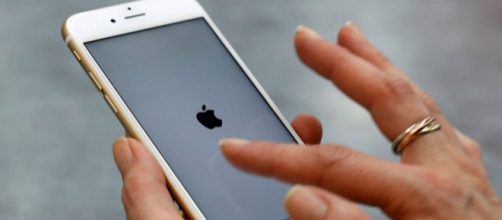Apple admitted last week it has been purposefully slowing down via an iOS software upgrade the ageing smartphones like iPhone 6, iPhone 6S, iPhone SE and iPhone 7, thus confirming the earlier speculation from its numerous users. Even though the company stated the move was to preserve devices battery performance and prevent the phones from shutting down unexpectedly, and it offered customers its apology, the latter appear to be less than satisfied. In the wake of revelations Apple has been hit with nine lawsuits, including one for almost $1 trillion.
The widely discussed issue brought a backlash from iPhone owners which resulted class action lawsuits filed in US states including California, New York and Illinois. As reported by Reuters, the suits claim that the Cupertino based giant defrauded iPhone users by not disclosing its policies prior to the ware being sold. The US suites were later followed by two more filed in other countries, one from customers in Israel and another one from a French consumer rights group. In broad terms, the lawsuits cover contract law claims.
They allege Apple harmed hardware the consumer already owned and paid for, without being transparent about the issue. Cited in the lawsuits are also consumer protection violations.
This was summarised by Rory Van Loo, a law professor at Boston University specialising in technology and regulation whom NPR quoted to say, "You changed my phone in a harmful way [and] didn't tell me you were doing that."
Apple slowing down older iPhones to boost sales of newer models
The claims allege that the deception about actual performance of older iPhone models had a purpose to induce consumers to buy a newer phone while instead they could simply have ordered a replacement battery at a fraction of cost.
In order to succeed in the fraud claims, plaintiffs will need to prove that Apple intended to promote new smartphone sales by slowing down older phones. The largest of the compensation demands is for a enormous $999 billion (£743 billion), filed by Violetta Mailyan in California. She alleges the company committed fraud through concealment and unfair competition under one of the state's Business and Professions Codes.
The suits filed to date include one by Raisa Drantivy and her legal team, claiming a total compensation of $100 million (£74 million). Each of the claims may represent millions of iPhone users affected by Apple's actions, yet all of them vary to some extent in requests for damages and reimbursement, as well as barring the company from meddling with devices computing speeds in the future.
Apple could face criminal charges in France
According to Independent, the resulting legal fallout over Apple slowing down older iPhone models has a potential of a criminal court proceeding in France. A local consumer rights group, Halte à l’Obsolescence Programmée (HOP), which in French stands for Stop Planned Obsolescence, recently filed a criminal lawsuit, thus raising for the first time a chance Apple facing criminal charges in Europe.
In its statement, the organisation claimed Apple’s actions violated a French law enacted just two years ago. The act they quote explicitly prohibits a practice of planned obsolescence, which it defines by the use of techniques aimed to deliberately reduce the duration of the product to increase its replacement rate. The paper quotes Laetitia Vasseur, HOP co-founder, “These practices are unacceptable and can not go unpunished.”
According to the group, if found guilty, the company's executives my face up to two years in prison or a fine of 300,000 euros (£267,000).


